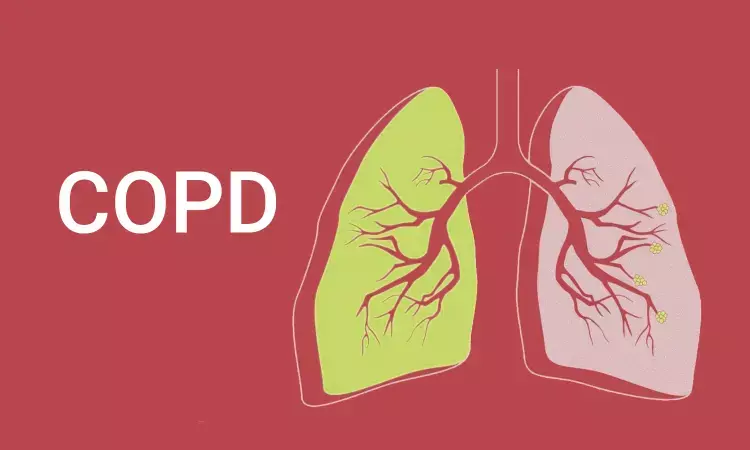- Home
- Medical news & Guidelines
- Anesthesiology
- Cardiology and CTVS
- Critical Care
- Dentistry
- Dermatology
- Diabetes and Endocrinology
- ENT
- Gastroenterology
- Medicine
- Nephrology
- Neurology
- Obstretics-Gynaecology
- Oncology
- Ophthalmology
- Orthopaedics
- Pediatrics-Neonatology
- Psychiatry
- Pulmonology
- Radiology
- Surgery
- Urology
- Laboratory Medicine
- Diet
- Nursing
- Paramedical
- Physiotherapy
- Health news
- Fact Check
- Bone Health Fact Check
- Brain Health Fact Check
- Cancer Related Fact Check
- Child Care Fact Check
- Dental and oral health fact check
- Diabetes and metabolic health fact check
- Diet and Nutrition Fact Check
- Eye and ENT Care Fact Check
- Fitness fact check
- Gut health fact check
- Heart health fact check
- Kidney health fact check
- Medical education fact check
- Men's health fact check
- Respiratory fact check
- Skin and hair care fact check
- Vaccine and Immunization fact check
- Women's health fact check
- AYUSH
- State News
- Andaman and Nicobar Islands
- Andhra Pradesh
- Arunachal Pradesh
- Assam
- Bihar
- Chandigarh
- Chattisgarh
- Dadra and Nagar Haveli
- Daman and Diu
- Delhi
- Goa
- Gujarat
- Haryana
- Himachal Pradesh
- Jammu & Kashmir
- Jharkhand
- Karnataka
- Kerala
- Ladakh
- Lakshadweep
- Madhya Pradesh
- Maharashtra
- Manipur
- Meghalaya
- Mizoram
- Nagaland
- Odisha
- Puducherry
- Punjab
- Rajasthan
- Sikkim
- Tamil Nadu
- Telangana
- Tripura
- Uttar Pradesh
- Uttrakhand
- West Bengal
- Medical Education
- Industry
Doxycycline add on benefits elderly patients with COPD

Although bacteria contribute significantly to acute exacerbations of chronic obstructive pulmonary disease (AECOPD), the added value of antibiotics remains controversial, especially in outpatient settings.
The researchers conducted a study to analyse the effect of doxycycline addition for Acute exacerbation of COPD using real-world evidence. They found that in elderly patients with COPD, doxycycline added on to corticosteroid reduces treatment failure (acute exacerbation; AECOPD) by 23% in the short term (15-31 days of initiation). However, no reductions were seen in this population in the long term (approximately 12 months) or in all-ages analyses.
A retrospective cohort study of pharmacy claims for 6300 adult primary care outpatients in the Netherlands who received either doxycycline (n=2261) or no antibiotic (n=4039) added on to corticosteroid (40 mg daily for 5 days or 30 mg daily for 7 days). The primary outcome was treatment failure, Acute exacerbation of COPD in the short- and long-term.
. The researchers found no difference between doxycycline and no-antibiotic groups in short-term risk for treatment failure across all age groups combined. However, an older subgroup (aged 75+ years) had a 23% reduced risk for treatment failure with add-on doxycycline:16.1% vs 19.9% in no-antibiotic group.Adjusted OR, 0.77 (95% CI, 0.62-0.97).
The groups did not differ in long-term risk (median time to next exacerbation), regardless of age. The researchers concluded that short-term treatment benefit of doxycycline added to oral corticosteroids for chronic obstructive pulmonary disease patients with advanced age. This value remains unclear for persons aged under 75 years in current primary care. Long-term preventive benefits of doxycycline for the next exacerbation were not observed, irrespective of age. There are significant benefits of doxycycline in reducing treatment failure of AECOPD among older outpatients. These benefits were not found in those aged under 75 years. The long-term preventive benefit of doxycycline for the next exacerbation was not observed, irrespective of age. The limitations of the study are that it is retrospective, observational design and there is more reliance on pharmacy claims data.
Journal: BMJ Open Respir Res
For further reference log on to:
Wang Y, Bos JH, Boezen HM, Alffenaar JC, van Boven JFM, Schuiling-Veninga CCM, Wilffert B, Hak E. Influence of age on real-life effects of doxycycline for acute exacerbations among COPD outpatients: a population-based cohort study. BMJ Open Respir Res. 2020;7(1). DOI: 10.1136/bmjresp-2019-000535. PMID: 320757
Dr Kamal Kant Kohli-MBBS, DTCD- a chest specialist with more than 30 years of practice and a flair for writing clinical articles, Dr Kamal Kant Kohli joined Medical Dialogues as a Chief Editor of Medical News. Besides writing articles, as an editor, he proofreads and verifies all the medical content published on Medical Dialogues including those coming from journals, studies,medical conferences,guidelines etc. Email: drkohli@medicaldialogues.in. Contact no. 011-43720751


